Order between May 3 and June 7, 2019
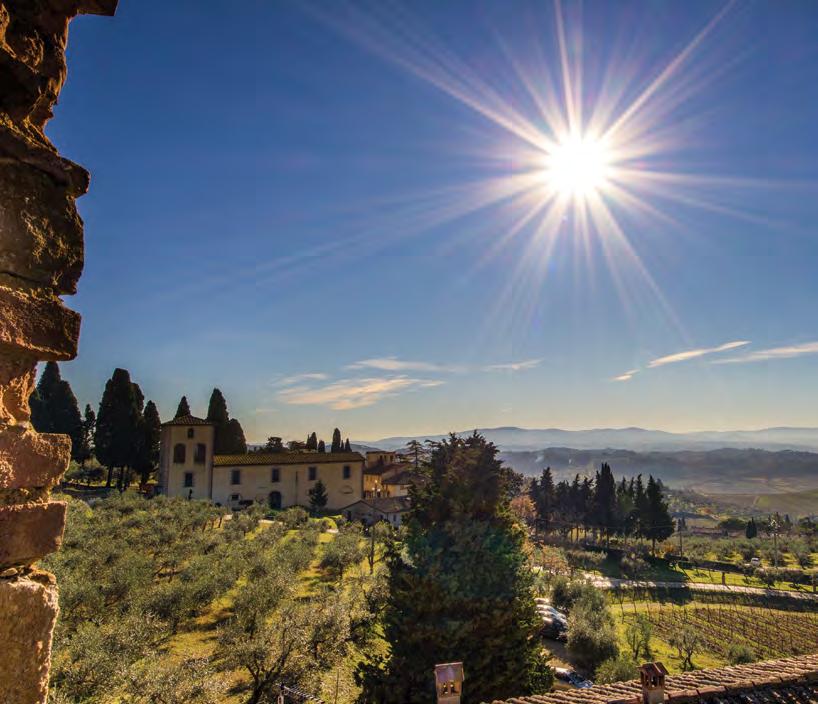

Order between May 3 and June 7, 2019

1. select your Wines
Let yourself be inspired by our detailed descriptions to find out which wines best suit your palate. Our custom chart also features a variety of symbols (explained below) that can guide your selection.
Grape variety Red White Rosé Sparkling
Bottle size
Number of bottles in case
Aroma
Taste
Serving temperature
Ideal with Evolution Drink this year
Will develop, drink within 2 years
Meant for cellaring
Concentration
Light Medium Great Oak Light
Medium
Heavy
Limited quantities
Limited
Very limited
Extremely limited
Less than 100 cases available
Members’ Choice
Most ordered by Opimian members
Opimian Suggests Starting a cellar
Medal Winner
Discovery
Opimian Discovery 2018 C258
Select Plus Opimian Select Plus 2018 C258
m—Degree of Maturity (1-10)
M1 = lay down
M10 = fully mature
d—Degree of Drinkability (1-10)
D1 = needs time
D10 = ready to drink
Still unsure what to order? Opimian’s Member Service team is always available to help you make an informed choice. Call us at 1-800-361-9421 or e-mail MemberService@Opimian.ca.
2. Place your Order
There are five ways to order
• Online: Go to Opimian.ca, sign in and select Order Now
• Email MemberService@Opimian.ca with your selection.
• Call 1-800-361-9421
• Fax your order to 514-481-9699
• Mail your order*
3. let us Handle the rest
The wines featured on this Cellar Offering are still at the producers’ wineries when you order them so it is normal that the process takes a bit of time and effort on our side.
Release dates are dependent upon actual arrival dates, distance from port of entry to liquor board and processing time required by each liquor board. For this cellar offering, the expected release date is mid-October 2019
Once the wine arrives at your local liquor store or distribution centre, you will receive a Pick Up Notice with the specified date (the Release Date) and your pick up location. You can follow the status of your shipment at all times at Opimian.ca.
Conditions of Purchase
• Accepted payment methods: Credit Card (Visa, MasterCard, American Express) or cheque payable to Opimian.
• Prices include all applicable federal and provincial mark ups and taxes.
• A valid membership card is required to order and pick up.
• Bottle prices are for reference only. All orders are by the case, with no minimum required.
• Last day to order from this Cellar Offering: June 7, 2019 Important: no orders will be processed after this deadline.
* Deadline for mailing orders: May 29, 2019. Please allow 10 days for delivery by Canada Post.
notes (as required by the saQ’s operating procedures)
• A member ordering from this Cellar Offering requests that Opimian acts as the member’s agent in ordering the wines from the Société des Alcools du Québec (SAQ) and requests that Opimian remits the funds enclosed (minus any administration fees) to the SAQ to pay for the wines ordered.
• The prices as shown are the estimated costs to be charged by the SAQ plus an administration fee and consolidation charges.
Sweetness scale Grams/litre Examples
[00] 0 - 3
Chardonnay, Sauvignon Blanc, many reds
[01] 4 - 6 Some New World varietals, some reds
[02] 7 - 12 Champagne, Sparkling, Rosés, few reds
[03] 13 - 20 Mosel, some Alsace, Anjou
[04] 21 - 34 Semi-sweet Bordeaux, some sherry
[05] 35 - 50 Kabinett German, Late Harvest, Alsace
[06] 51 - 74 Spätlese German, Sweet Loire, Port, Dessert Muscat
[07] 75 - 100 Auslese, Beerenauslese
[08] 101 - 139 Icewines, Sauternes, Barsac, dessert wines, Port
[09] 140 - 179 Icewines, Sauternes, Barsac, dessert wines, Port
[10] 180 > Speciality sweet wines, Trockenbeerenauslese
cover — Cinciano is an ancient hamlet in the heart of Chianti Classico, dating back to 1126.
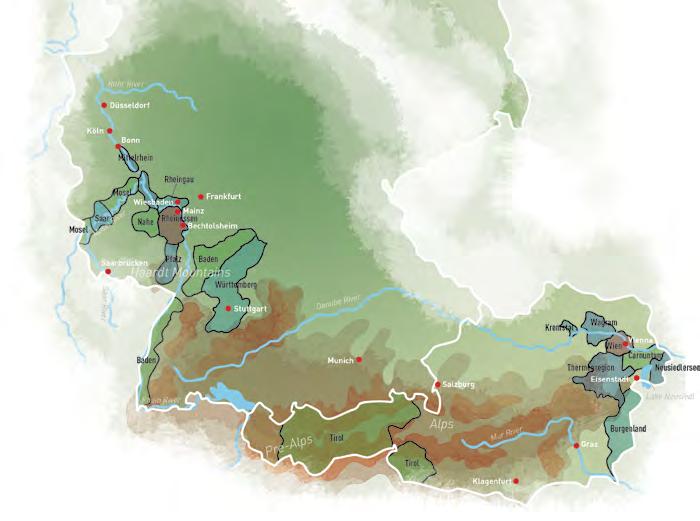
Northern parts of Europe – Germany and Austria - both enjoyed good climatic conditions during the 2018 growing season, following what was a successful vintage in 2017. Winemakers Gerd Stepp, Alex Pflüger and Christof Höpler all feature distinctive wines.
As described in cellar Offering 265, Italy is also showing great promise for the 2018 vintage with new wines from Stefano Girelli’s latest venture in Sicily, Cortese, as well as classic wines from Tuscany and Piedmont.
Opimian’s Wine Consultant Jane Masters MW, tastes, selects and writes the commentary for each of the wines in the cellar offerings. Celebrating her 21st year as a Master of Wine this year (one of 378 globally), Jane held the position of Chairman of the prestigious Institute of Masters of Wine 2016-2018. Having trained as a winemaker at the Institut d’Oenologie in Bordeaux after a degree in Biological Chemistry, Jane worked for UK retailer Marks & Spencer running the Wine & Drinks Category for many years. As an independent consultant Jane is constantly on the look out for exclusive wines from around the world for Opimian members. She regularly visits wine regions and meets producers and loves to share her passion and knowledge.

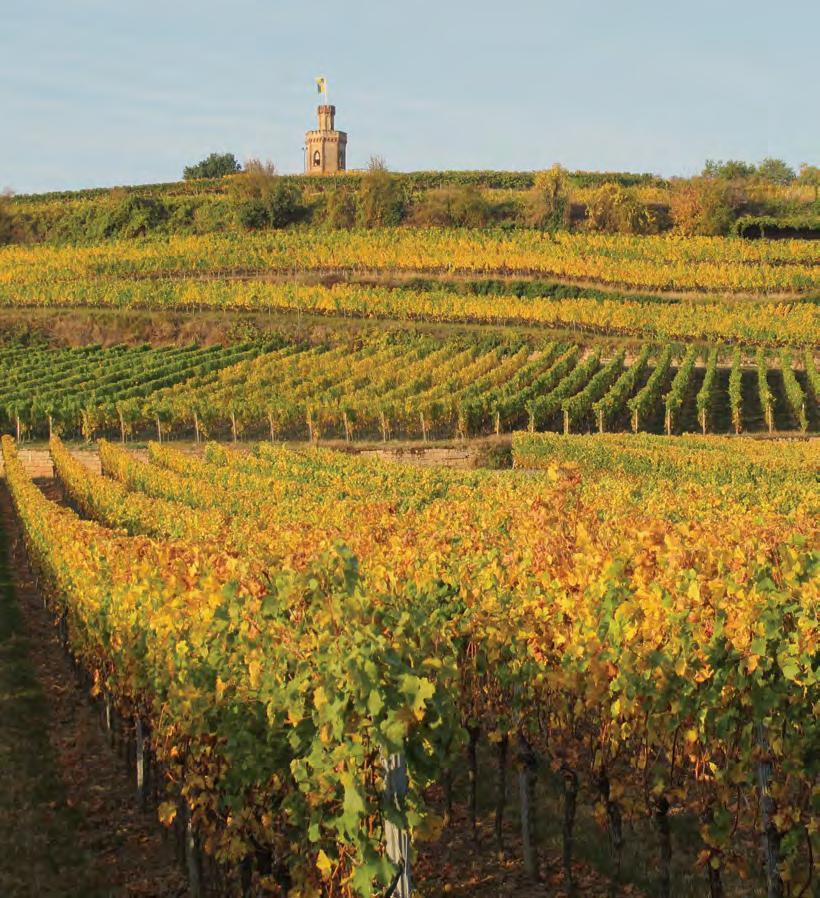
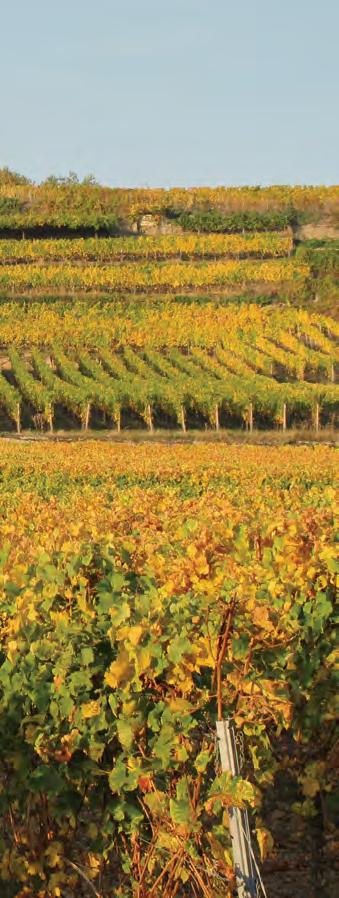
German wines are thriving, and export sales are growing. Opimian works with two dynamic producers from the most exciting region, Pfalz. Germany produces some of the finest, longest lived Rieslings as well as other white varietals and increasingly high quality red wines. The Pfalz has the highest number of sunshine hours in the country, making it suitable to ripen a range of grapes. That, combined with a great harvest in 2018, means there are lots of interesting wines to choose from.
Pfalz Stepp
Gerd Stepp grew up on his parents’ vineyard and always knew he wanted to be a winemaker. His parents, their parents and their grandparents were all grape growers and members of the local winemaking co-op. Gerd has made wines in places as far flung as Nigeria, Zimbabwe, South Africa, Italy and Argentina, to name a few. Upon returning to the Pfalz, he has created new and different wines using fruit from his family vineyards in Bad Dürkheim and Wachenheim and has sourced grapes more widely.
“Special vineyard site selection and minimal intervention winemaking in the cellar guarantee that our wines retain their sense of place.“
1301 Stepp Rie S ling, p falz, 2018 Riesling

Pale in colour with aromas of green apples, lime leaves and flint with a hint of smoke, there is no doubting this is Riesling. It is smooth with fresh apple, lemon and lime flavours with a tangy acidity and a citrus pith finish giving length on the palate. Grapes came from two vineyard sites: Herxheim am Berg and Bad Dürkheim. A long slow fermentation over two months was followed by maturation on lees for six months.
2019-2020, M8 D9
Green apples, lime leaves 6°C
Lemon, lime, fresh apples, [01]
Bacon-and-egg pizza
1302
Stepp Rie S ling vom Saumagen, p falz, 2017
A single vineyard Riesling from Kallstadter Saumagen. The composition of the soil and the south east exposition make it one of the Pfalz’s prime sites. The soil is loessloam over shell-based limestone known locally as Muschelkalk. Distinctly mineral in character, it has notes of petrol and kerosene with fresh limes. It is smooth and fresh with a limey acidity and quite tart on the finish, giving depth. Initial spontaneous fermentation by indigenous yeast and maturation on lees added texture and richness, creating a wine which should mature nicely over several years.
2019-2022, M8 D9
Fresh lime, kerosene 6°C
Green apples, fresh citrus finish, [02]
Asian-style spicy duck legs

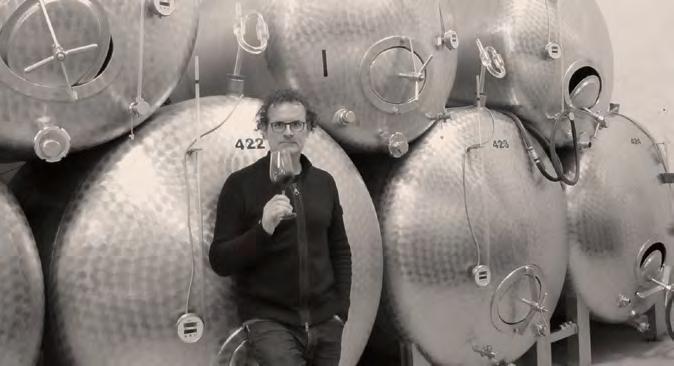

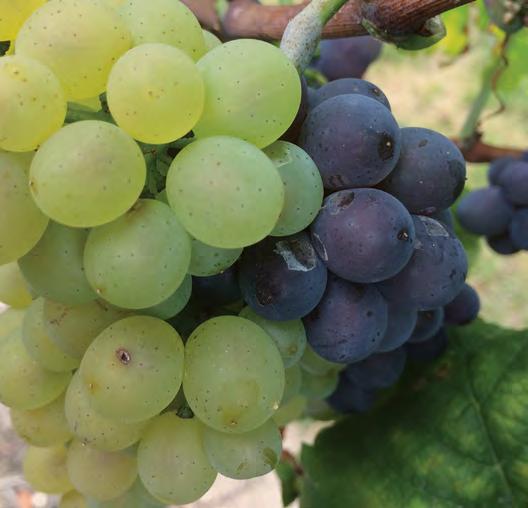
Did you know that white grapes account for 63% of Germany’s vineyards?

The early vintage and warm growing conditions in 2018 have produced a Pinot Gris with fresh apple, pear and lemon aromas. On the palate, clementine and other citrus flavours are followed by a tart lemon curd tangy finish. Pinot Gris vines are cultivated on loamy soils with high limestone content which helps to reduce the vigour of the vines and give concentrated grapes. After picking, grapes were lightly crushed and left to macerate on skins for a short period.
An elegant Gewürztraminer with floral aromatics and a savoury edge. It is medium bodied, soft with a firm lemony acidity, delicate flavours and a pithy finish – great to go with Thai food. Grapes grown on alluvial soils with clay, sand and gravel were handpicked and immediately slowly pressed. Fermentation was arrested, leaving a touch of residual sweetness, and the wine was matured on lees for four months.

$ 27.00 $ 162.00
Strawberry aromas and yeasty notes lead to a smooth wine which is supple and easy drinking with nice raspberry and strawberry flavours. Made from the same Pinot Noir grapes used to make the red, the juice for the rosé is drawn from the tank after just a few hours of skin contact – a method known as saignée (bled).

The Pfalz region has the longest sunshine hours of all regions in Germany – making it the most suitable for ripening Pinot Noir. A third of the wine was matured in new French oak barrels, the balance in older barrels for twelve months. It has a distinctly spicy oaky character on the nose and palate with flavours of dark bitter cherries emerging from the background. It is supple with good mid-palate weight and some astringent tannins on the finish.
pan-seared veal legs with tomato and mozzarella

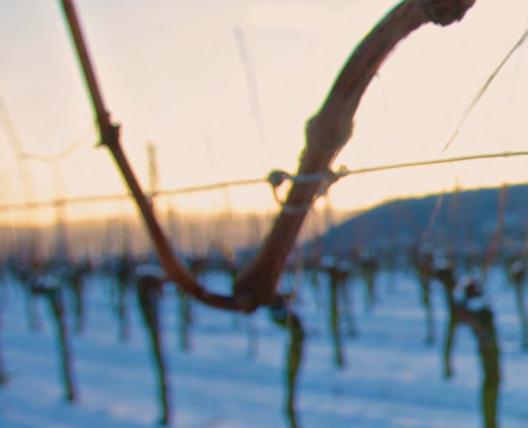

Coming from a single vineyard plot, the south east facing slope is surrounded by traditional sandstone walls and terraces. The unique microclimate produces a distinctive wine with intense aromas including fresh blackcurrant, strawberries and other forest fruits. It is intensely flavoured with a grainy texture and firm acidity, giving it aging potential. Grapes were hand-picked, partially de-stemmed (60%) and placed in open top fermenters with no use of pumps. The grapes and juice were left to steep for ten days at low temperature then the fermentation initiated. The wine was matured in 60% new oak barrels and 40% second fill for eighteen months, yet the oak is less obvious than the Stepp Pinot Noir due to the concentration and structure of the Buntsandstein grapes.
nothing beats a Buntsandstein Pinot noir!
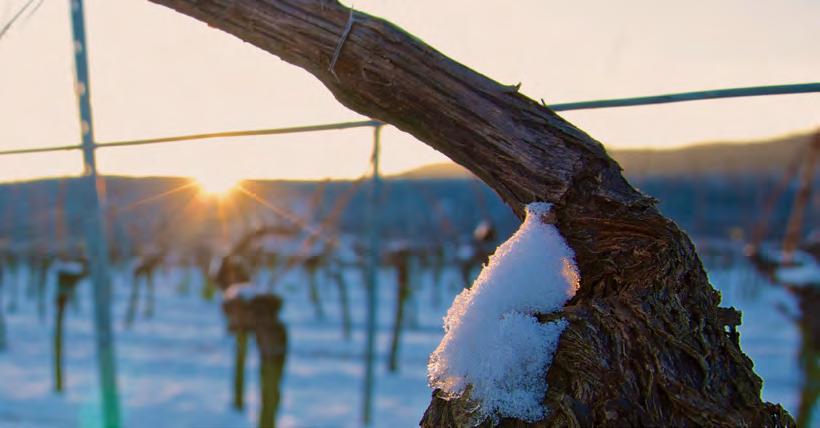
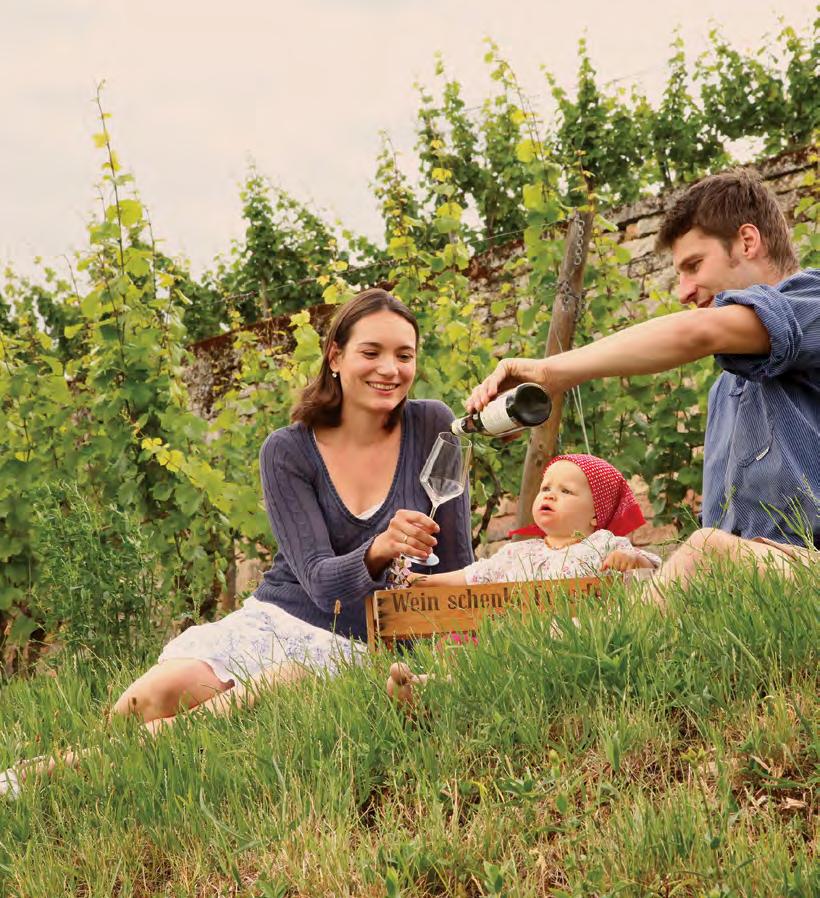

Alex Pflüger took over the running of the family estate from his father, an organic farmer, in 2010. A keen practitioner of biodynamics, the estate has been fully Demeter certified since 2008, meaning that there is no use of pesticides or insecticides used in the 18 hectares of vineyards. Areas are set aside to encourage biodiversity and create natural habitats for insects and birds. Alex views biodynamics as a return to old values, with living soils producing more intense and interesting wines.
“The wonderful hospitality and lust for life of the people in our area will always be part of our wines.“
1308 p flüge R Rie S ling, Bund S and S tein, Qualität S wein, p falz, 2018
Riesling
$ 33.00 $ 198.00

Riesling grapes for this wine come from plots in the villages of Dürkheim, Wachenheim and Friedelsheim, where vines are cultivated on typical red sandstone soils. Grapes were fermented in stainless steel tanks, producing a fresh lemon and quince flavoursome wine. With just a tad of sweetness to offset the natural acidity, it tastes dry and has good depth. Alex’s wines are produced using the same philosophy as in the vineyard, without use of enzymes or fining agents. Spontaneous natural fermentation is arrested by chilling the wine towards the end of fermentation.
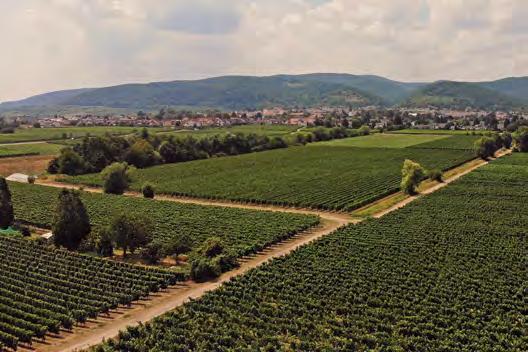
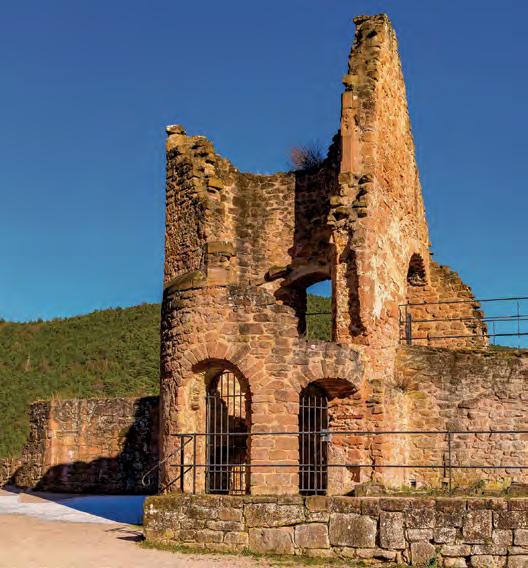
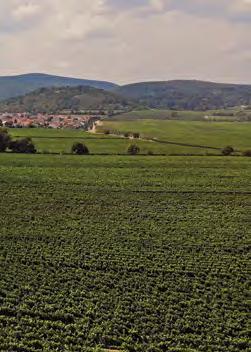
1310
Pflüger planted Sauvignon Blanc in 2010, seeing a great potential for the grape given the cool climate and terroir. Alex tells me that Sauvignon under the name of Muskatsylvaner was planted in the region before the two World Wars, but then disappeared in favour of more productive varieties. It is now cultivated in several different plots around the village of Bad Dürkheim (Bad means “spa” in German, rather than anything sinister). Soils tend to be lighter quartzite and warmer and in 2018 have produced a wine with white peaches, lychees and tropical fruit aromas. It is broad in structure with more of the tropical fruit flavours and a long complex finish.


Just a small quantity is produced from this single vineyard in Michelsberg, giving a distinctive characterful wine. Michelsberg is a five-hectare “Grosse Lage”, or Grand Cru site, with old Riesling vines planted on terraces facing south. The 2017 has an intense bouquet with toffee, caramelized pineapple and orange peel with a hint of earth. It is rich and smooth with lingering flavours of bitter orange and barley sugar. After fermentation, it spent nine months maturing in tank.

A wonderful wine with an intense bouquet that gives any decent Burgundy a run for its money. This is Pinot Noir at its best, complex with red berries, wild strawberries and chocolate. It is multidimensional with layers of flavour. Light to medium bodied, it is supple with a long Pinot Noir and vanilla finish. The Pinot Noir vineyards are planted on sandy soils on warm sites in Nonnengarten and Fronhof, close to Bad Dürkheim. After fermentation in tank, the wine was matured for 12 months in large casks made from locally grown oak.
pork tenderloin with
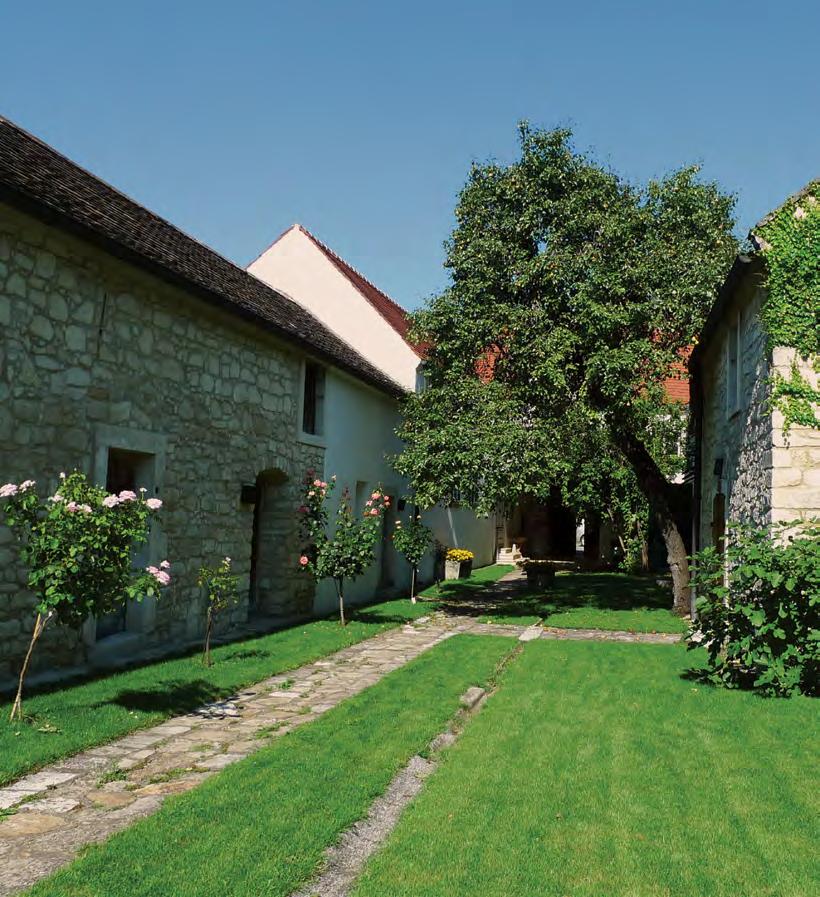
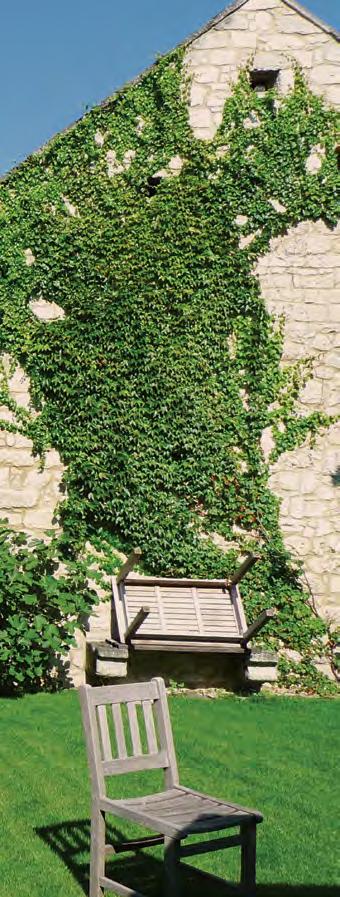
The Austrian wine trade has completely reinvented itself since the wine scandals of the 1980s when its reputation was shot to pieces when several wineries were found to be adulterating their wines with anti-freeze. It is now known for producing food-friendly wines and has developed a reputation for world-class dessert wines.
The Höpler vineyards and winery lie close to Lake Neusiedl and Austria’s border with Hungary in Burgenland. Christof Höpler oversees 50 hectares of vineyards on the north western side of the lake in the Leithaberg hills. He makes elegant wines with a touch of minerality. The shallow-reeded lake (just three feet deep) plays a key role in the climate of the region and allows for the development of noble rot, which is so important in the production of Höpler’s sweet Trockenbeerenauslese.
“Our wines grow and mature in harmony, developing strong characters and finding their own identity.“
1312
h öple R gR üne R v eltline R ,
Qualität S wein, Bu R genland, 2018
Grüner Veltliner
$ 30.33 $ 182.00

Grüner Veltliner wines helped to turn around the fortunes of Austrian wines by producing good quality, food friendly styles. Christof’s 2019, tasted as a tank sample, was restrained with typical fresh apple aroma and some flintiness. It is smooth on the palate with more apple and nectarine flavours leading to a crisp lime finish.
1313 h öple R Sauvignon Blanc, Bu R genland, 2018 s auvignon Blanc
$ 34.67 $ 208.00

2018 Sauvignon Blanc has a broad structure with floral notes, sour gooseberry flavours and an earthy spiciness to it. Grapes were picked on August 27, 2018 and fermented at cool temperature, leaving a touch of sweetness.
1314
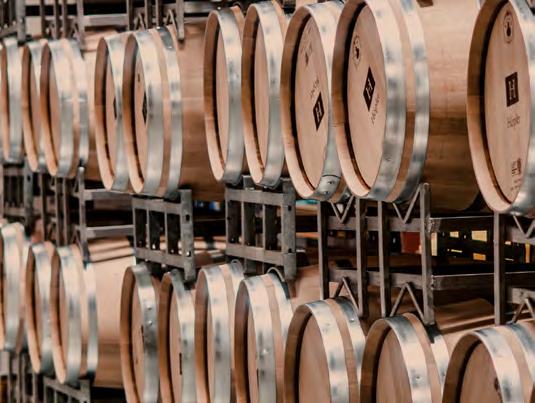
h öple R Ro S é c éle S tia, Qualität S wein, Bu R genland, 2018
p inot Noir, st. Laurent, Blaufränkisch
$ 31.17 $ 187.00
Delicately pale pink in colour, 2018 Rosé Célestia is a complex rosé with flavours of strawberry leaf, fresh apples and pears. It is dry and refreshing on the palate with a slight spritz and bitter cherry finish. Rosé Célestia is produced from a blend of Pinot Noir, St. Laurent and Blaufränkisch grapes.

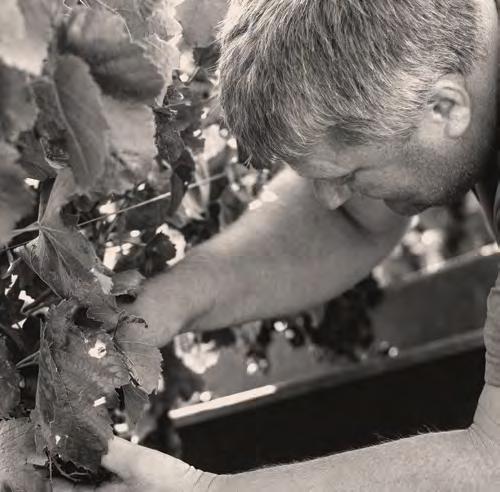
h öple R tR ocken B ee R enau S le S e, pR ädikat S wein, Bu R genland, 2017 Welschriesling, s ämling 88 $ 57.33 $ 344.00

Austria produces some of the finest dessert wines in the world. The region around Lake Neusiedl creates an environment perfect for the development of noble rot. Höpler’s 2017 Trockenbeerenauslese is a blend of 20% Sämling 88 and 80% Welschriesling grapes that were left on the vines. Grapes were picked between November 19 and 29, 2017 after having shriveled and dried, giving an unctuous concentrated juice when pressed. The wine is golden yellow in colour with a complex bouquet of barley sugar, caramelized orange, some earth and a hint of vanilla. It is rich and sweet with flavours of apricots, a succulent acidity and a bitter sweet finish.
Blaufränkisch, syrah, Merlot $ 36.83 $ 221.00

An earthy spicy red made from a blend of mainly Blaufränkisch with Syrah and Merlot (which were matured in oak for 16 months). It is medium bodied with a powdery silky texture, well rounded with a firm tannic finish. Grapes were all harvested by hand between September 29 and October 5, 2016. Not as expressive as the 2015 offered last year, it is supple and smooth and should develop nicely. Blaufränkisch is an early budding but late ripening variety, hence requires a warm climate to mature. It is Austria’s second most planted black grape and does well in the southern Burgenland region.
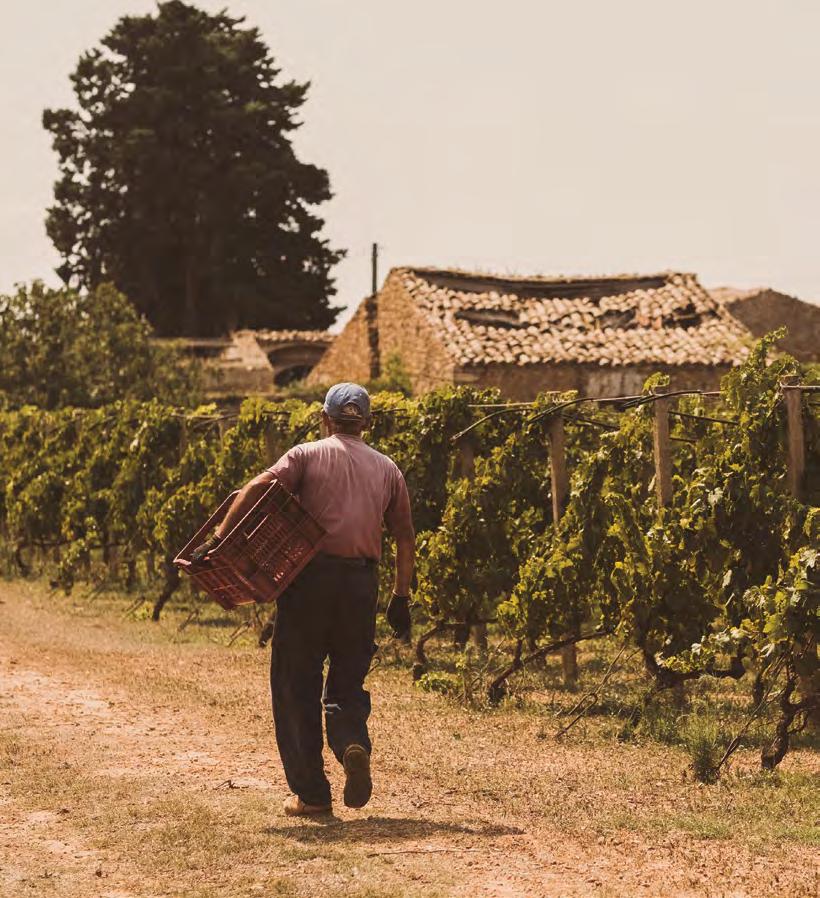
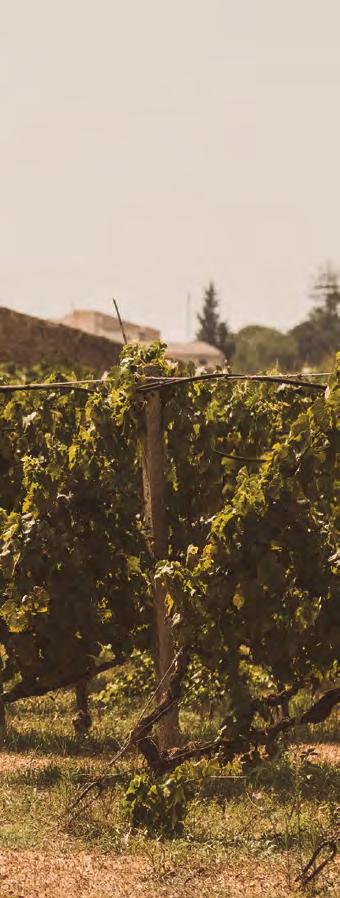
Stefano Girelli founded The Wine People with winemaking consultant Stefano Chioccioli. Despite coming from Trento in the far north of Italy, Stefano Girelli was drawn to Sicily many years ago, believing that its warm climate and rugged soils had the potential to produce world-class wines in the most natural way possible. The company also makes wines in Tuscany and Puglia.
“Quality, indigenous grapes, respect for the terroir and regional cultures are our most important values.“
Azienda Agricola Cortese estate is Stefano Girelli’s latest venture in Sicily. He purchased the estate in 2016 from Giovanna Cortese. At the tender age of 82, Giovanna had been tending to her 14-hectare vineyard for decades and was looking to retire. Despite this, it took Stefano six years to convince Giovanna that he was the right person to sell her legacy to. The estate is located close to the hilltop town of Ragusa in southern Sicily. Initially, Stefano had planned to use the grapes to increase production of wines already in his range, however the sheer quality of what was being produced led him to create a separate estate label. The focus is on organic wine production using traditional Sicilian grape varieties and old winemaking practices.
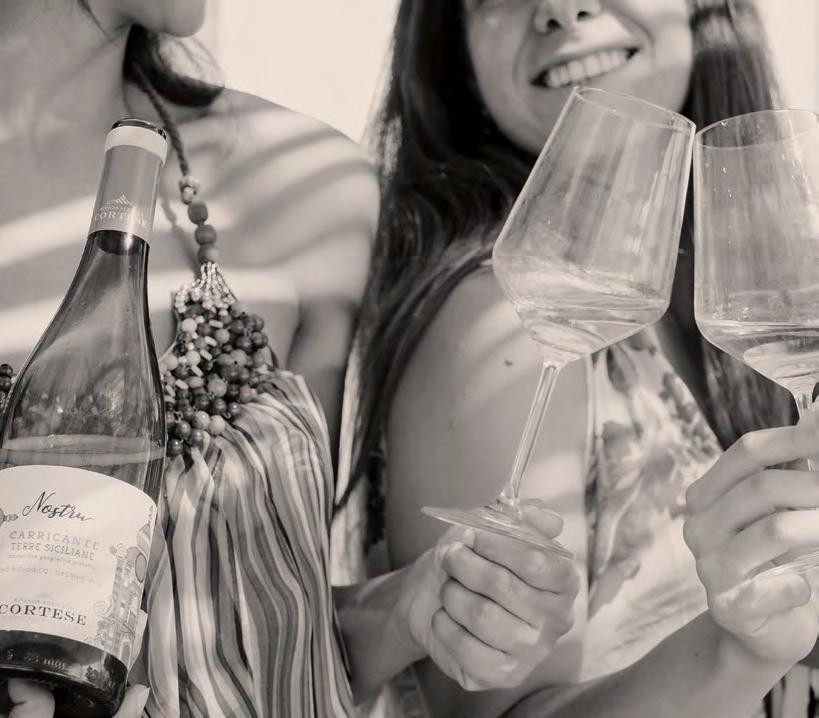
Taste the difference in these organically-grown Cortese wines.

1317 n o S t Ru c a RR icante, igp t e RR e Siciliane, 2018
26.67 $ 160.00
Carricante is a grape variety mostly cultivated on the slopes of Mount Etna that grows well at altitude, with the vineyards all above 400 metres. The name, coming from Sicilian dialect “u carricanti”, means “heavily laden” and refers to the naturally high quantity of grapes the variety produces if not tempered through pruning. Pale in colour, the 2018 has ripe fresh fruit aromas of lemon and green apples. It is crisp with a pure crystalline structure and refreshing acidity. The funky label depicts the baroque San Giorgio cathedral in the city of Ragusa.

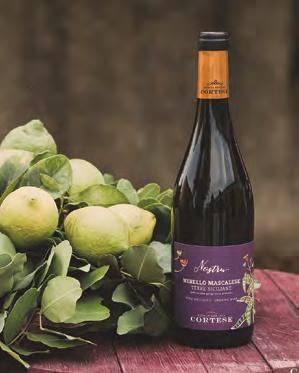
Nerello Mascalese $ 26.67 $ 160.00 new
1318 n o S t Ru n e R ello m a S cale S e, igp t e RR e Siciliane, 2018

Nerello Mascalese likely originated from the commune of Mascali close to the coast, east of Mount Etna. Intensely coloured, Nostru Nerello Mascalese 2018 is brimming with blueberries, blackcurrant and a touch of vanilla. It is light to medium bodied with fine tannins.
Fresh fruits, vanilla
sicilian arancini di riso – fried stuffed rice balls
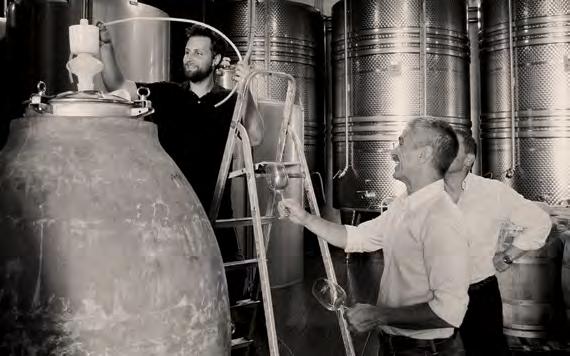
1319 vanedda, Bianco, igp t e RR e Siciliane, 2017
Grillo, Catarrato
$ 32.83 $ 197.00 new

Vanedda is produced from two classic white Sicilian varieties fermented on their skins (unusual for white winemaking) with techniques that were used to make wines in years gone by. The result is a wine with lots of personality – aromas of yellow fruits, buttery coconut oak with cooked pineapple fruit flavours on the palate. It has a refreshing acidity with some phenolic pithy character adding length. Grapes were hand harvested into small baskets and chilled for 24 hours. After careful de-stemming, the juice fermented on skins for several days was then run into large oak botti.

1320
Sa B uci, c e R a S uolo di v itto R ia c la SS ico, docg, 2017
Nero d’Avola, Frappato
$ 38.83 $ 233.00 new
Cerasuolo di Vittoria is the only DOCG on the island of Sicily. The Cortese estate located in the hamlet of Sabuci is a prime spot for growing Nero d’Avola and Frappato grapes to produce Cerasuolo di Vittoria. The 2017 has dark fruits with fresh blackcurrant aromas. It is supple, medium bodied with a good juicy mid-palate and a long bitter cherry finish. 70% of the blend is Nero d’Avola fermented in open top barrels. 30% is Frappato grapes fermented in terracotta amphorae. Used by the ancient Greeks, the natural porosity of terracotta allows a slow exchange of oxygen during the fermentation and the wine is left on skins for twelve months. The two varieties were subsequently blended together and matured in oak botti.
Anelletti al forno with sicilian ragù
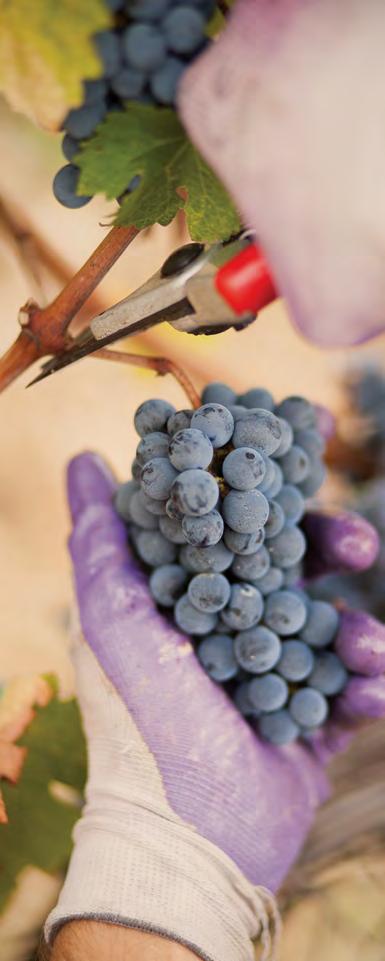

1321
Grown in the region around Trapani in the west of the island, this is a blend of the indigenous Cataratto grape with 40% Pinot Grigio. Tasted as a tank sample in January, the wine had ripe peaches and appley aromas with more lemon and spicy flavours in the mouth, finishing on notes of citrus pith.
peaches, apples 6°C
spicy, citrus pith, [01]
Antipasto
1322 i nde S io Shi R az, igp t e RR e Siciliane, 2018
Toast to Silicy’s wine revolution with one of these amazing wines.

A smooth Shiraz with flavours of mixed forest fruits and spices, Indesio conjures up images of Sicilian sunshine. it is medium bodied, supple and dangerously gluggable.
2019-2021, M8 D9
Forest fruits, spice 18°C
smooth, blackberries
tomato garlic pasta
1323
f edele Ro SS o, igp t e RR e Siciliane, 2018
Nero d’Avola, Merlot, syrah
$ 21.67 $ 130.00

Fedele Rosso is produced mainly from the Nero d’Avola grape with a touch of Merlot and Syrah. Vines are farmed organically and trained using the traditional Spalliera system. Grapes were picked, destemmed and light crushed prior to fermenting at 28°C.
2019-2021, M8 D9
savoury, spice 18°C
Chocolate
Gnocchi with pumpkin, ricotta, pine nuts and sage butter
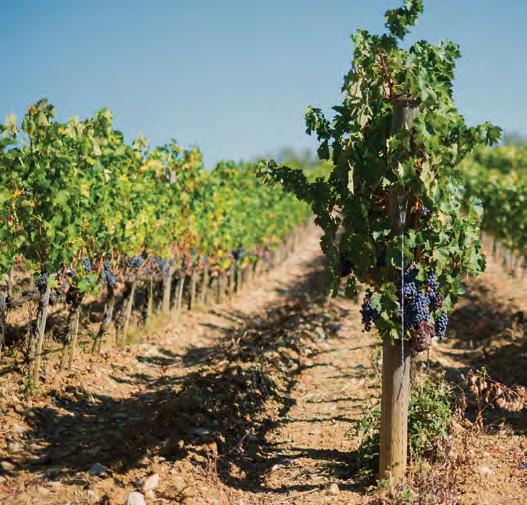
1324
Rupe Secca n e R o d’avola, doc Sicilia, 2018
Nero d’Avola $ 23.33 $ 140.00
A light and fruity Nero d’Avola with aromas of raspberries, redcurrant and almonds. This wine could be served chilled. It has a refreshing acidity and is well balanced. Grapes were grown inland in the hills around Riesi.
2019-2021, M8 D9
almond 10°C
Raspberry
Chicken stuffed with foie gras and truffles

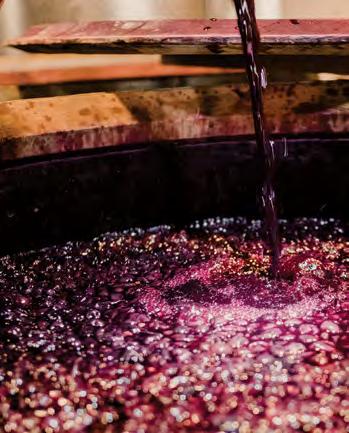
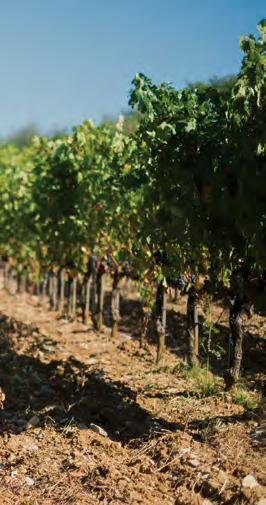
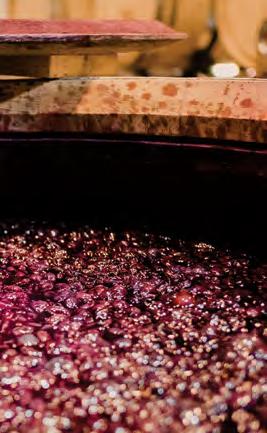

1325 i nde S io p inot gR igio, doc d elle v enezie, 2018
1326 d ea d el m a R e m ontepulciano d’aBRuzzo, doc , 2018
Montepulciano
$ 20.00 $ 120.00
Deep in colour with appealing aromas of cherry yogurt and blackberries, the Dea del Mare Montepulciano is soft, supple and very moreish. Grapes came from select vineyards in the Pescara and Chieti provinces of Abruzzo and were hand-picked in late September and early October.
Indesio Pinot Grigio is a less expressive wine with subtle white fruit and fresh pear aromas. It is light to medium bodied with a fresh crisp and persistent finish. Grapes grown in the Veneto region in the northeast of Italy were picked by hand in mid-August. After pressing the grapes, the juice was chilled and left to naturally sediment prior to racking and then fermented below 18°C.


1327 Sogatia c hianti docg, 2018
s angiovese, Cannaiolo
$ 22.33 $ 134.00

A medium bodied Chianti brimming with red berry fruits – red cherries, raspberries. A small amount of Cannaiolo was blended with Sangiovese and the grapes fermented in tank. The wine is firm in structure.
1328 Sogatia c hianti Ri S e R va, docg, 2016
s angiovese
$ 23.67 $ 142.00
Sogatia Chianti Riserva 2016 shows some nice development with tertiary aromas of forest floor and a hint of smoke. It is medium bodied with good depth and a firm finish. Sangiovese grapes were fermented in concrete tanks with regular pumping over and maceration on skins for ten days. The wine was aged for twelve months in Slavonian oak vats.
Medium bodied

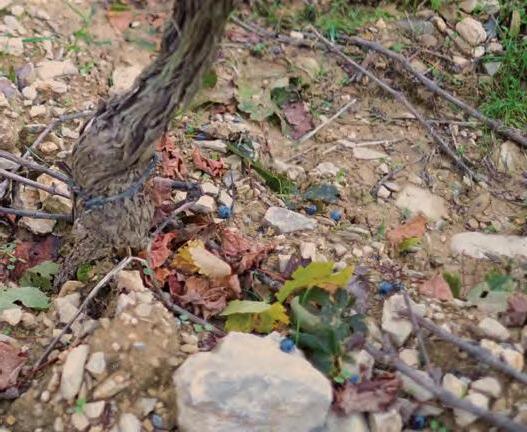
1329
a ltadonna c hianti c la SS ico, docg, c hioccioli a ltadonna, 2016
s angiovese, Merlot, Cabernet s auvignon, syrah
$ 33.67 $ 202.00
Brothers Niccolo and Enrico inherited a passion for wine from their father – Stefano Chioccioli, a well-known and respected consultant. The brothers chose to “return to the soil” (Enrico trained as a lawyer) and they do everything from pruning to bottling themselves. Their 2016 has a spicy incense aroma leading to a concentrated structured palate with flavours of dark fruits and cherries. It is medium bodied with quite firm tannins and will benefit from some more time in bottle to mellow. The 12 hectares of vineyards are located in two areas – Gaiole, close to the winery, and Quercegrossa. Grapes were handpicked into small boxes, passed on a sorting table and de-stemmed into tank then fermented on skins for 25 days. The wine was aged in two and threeyear-old oak barrels for a year.


1330
a ltadonna c hianti c la SS ico Ri S e R va, docg, c hioccioli a ltadonna, 2014
s angiovese, Merlot
$ 44.50 $ 267.00
The 2014 Riserva is starting to show a complex meaty bouquet with dark fruits, vanilla and cola. This is a medium to full bodied wine with firm oak tannins, vanilla and good depth. It is a blend of Sangiovese with a small proportion of Merlot. After fermentation in stainless steel tanks, it was matured in French oak barrels for 16 months.
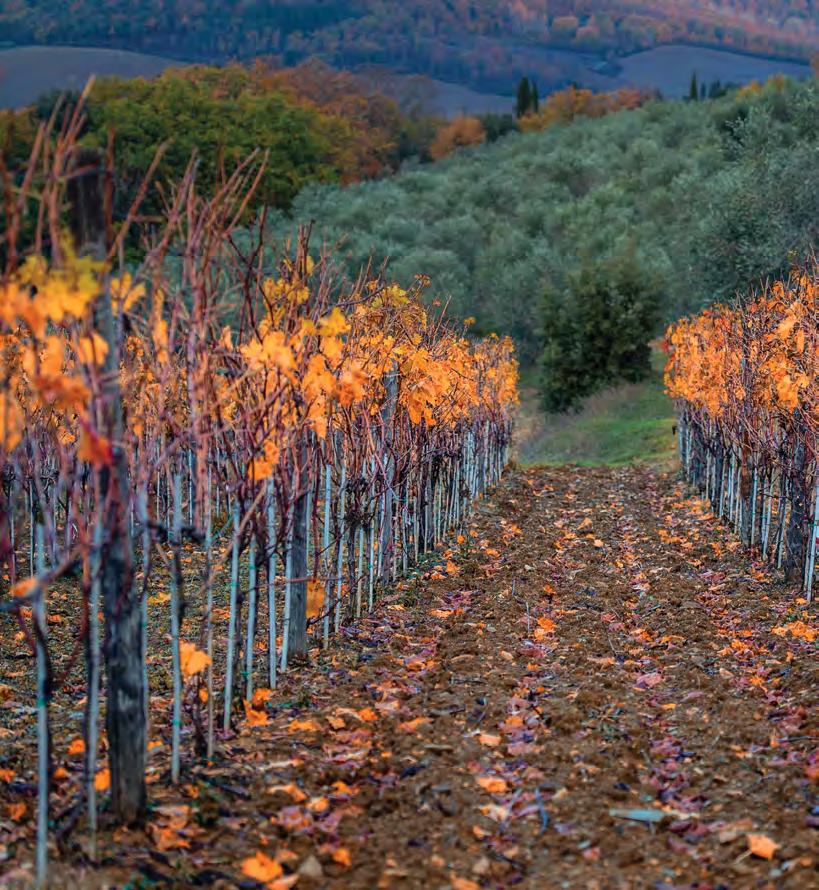
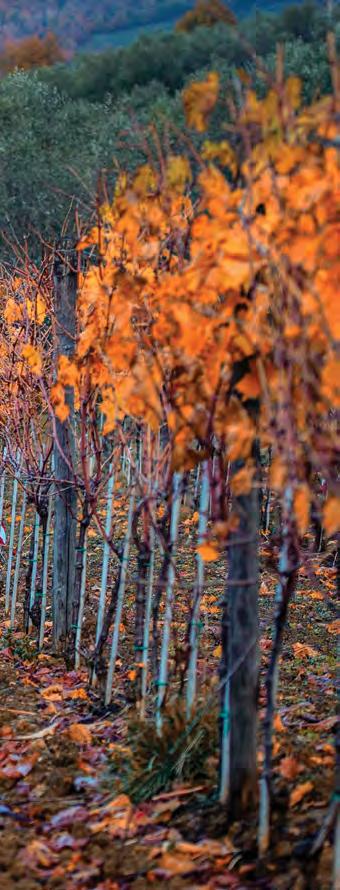
Cinciano estate is in a little world all of its own, sitting atop a hill in the Chianti Classico region. The only path leading to the estate is a windy narrow track. From Cinciano estate, you can look out across to the ancient towers of San Gimignano built in the 13th century by well off families wishing to display their wealth and success. The ancient hamlet of Cinciano used to be a self-sufficient community and nowadays comprises vineyards, olive groves, an Osteria serving produce from the estate and an elegantly restored villa and farm buildings. It is a haven in the region, with wines made by Andrea Biagini with Stefano Porcinai’s oversight.
“Our wines are our pride and passion. The strength of Sangiovese is our symbol, tradition is our method.“

Fresh white fruits, melon and pear aromas give this wine lots of appeal. This is a crisp medium bodied white produced from a blend of 50% Viognier, 30% Chardonnay and 20% Sauvignon Blanc. It has a supple mid-palate with more peachy, floral notes emerging on the tongue which linger. Andrea Biagini and Stefano Porcinai source grapes grown on Galestro soils from neighbouring growers.
2019-2020, M8 D9
Fresh fruits, pears 6°C
Floral, peaches, [00]
Grilled chicken pasta salad with caramelized onion, broccoli and mango

Cinciano Chianti
Classico 2017 is a concentrated and structured wine which is medium to full-bodied. Earthy black fruits and black cherry aromas lead to a supple palate with ripe tannins and a juicy acidity. Despite the wine’s density, it is fine in texture with good mid-palate fruit. Vines are planted with a south-west exposure on stony clay soils. Grapes were harvested at the end of September and fermented in glass lined concrete tanks.
2020-2025, M6 D8
Concentrated, structured
Bucatini with sausage and peas
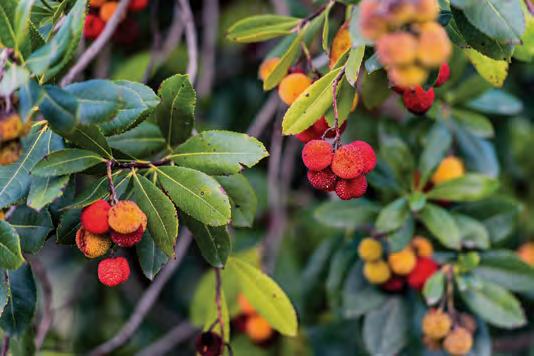

Mellow oaky aromas of caramel and vanilla cream complement dark fruits. The oak is apparent but deliciously integrated, leading to a soft smooth palate. Cinciano Chianti Classico Riserva is medium bodied with black cherry and liquorice flavours which persist and are complemented by a fine powdery texture. Grapes for Riserva came from older vines on the estate with a minimum of 45 years age. These were picked in early October at optimum ripeness. The wine was matured up to 18 months in large Slavonian oak casks and will benefit from further time in bottle before reaching its peak.
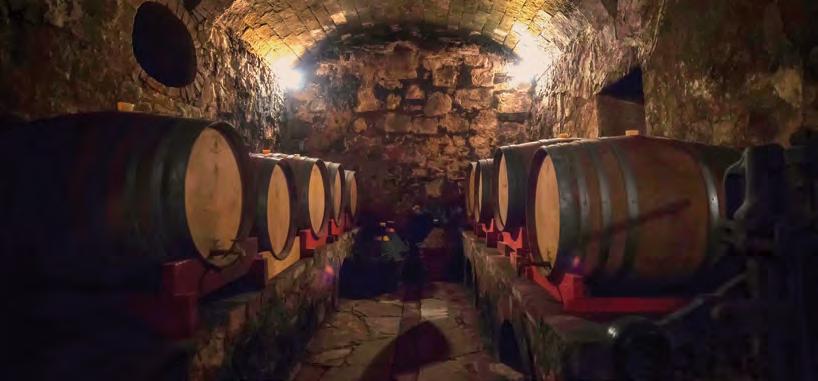

c inciano c hianti c la SS ico gR an Selezione docg, 2014 s angiovese $ 55.67 $ 334.00
c inciano p iet R afo R te, igp t o S cana, 2013
$ 60.00 $ 360.00 1335
Cinciano Chianti Classico Gran Selezione is produced from a special selection of the best grapes grown on the estate. These were picked by hand in the first half of October 2014 and were fermented in tank with an extended maceration for 30 days. After malolactic fermentation, the wine was matured in casks for up to 24 months, producing a structured wine with firm tannins and good length. On the nose it has aromas of blackcurrant, old oak and undergrowth. It is medium bodied with a juicy blackcurrant acidity and some chewy tannins, finishing on a persistent bitter chocolate note.
Merlot, Cabernet s auvignon, s angiovese

Pietraforte is Cinciano’s Super Tuscan produced from a blend of 40% Merlot, 40% Cabernet Sauvignon and 20% Sangiovese. Despite its six years of age, the 2013 remains youthful with fresh blackcurrant aromas. It is tight and structured, medium to full bodied with some grippy tannins and will benefit from several more years in bottle. Flavours of black cherry and bitter chocolate come to the fore with a bit of aeration. It was matured for 18 months in medium toasted French oak barrels.
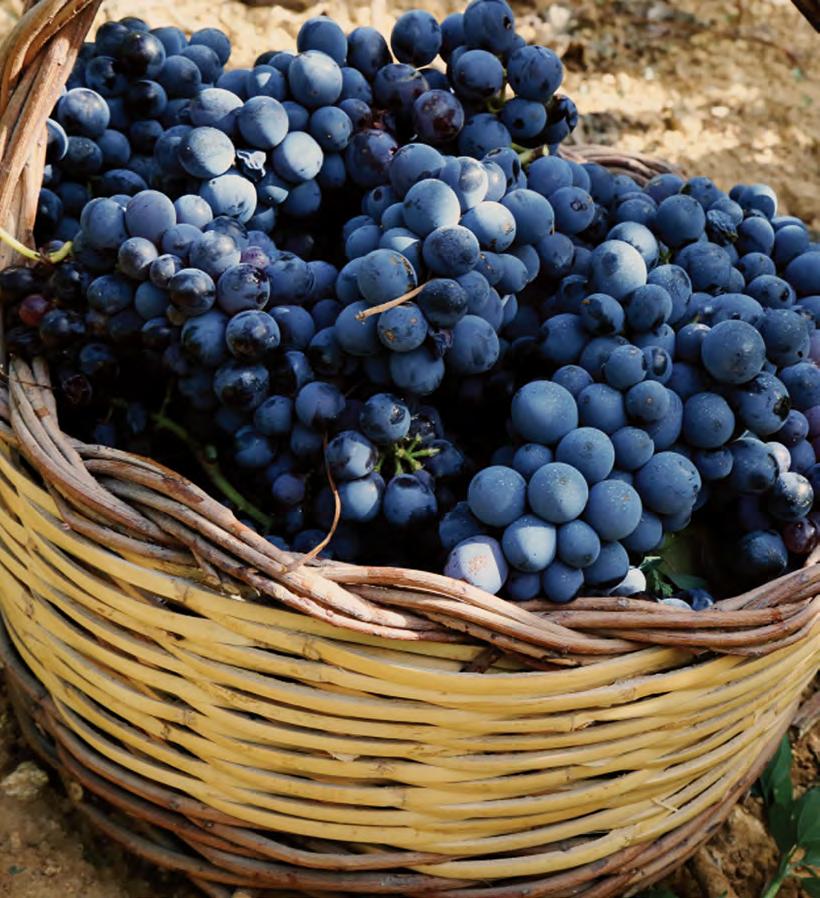
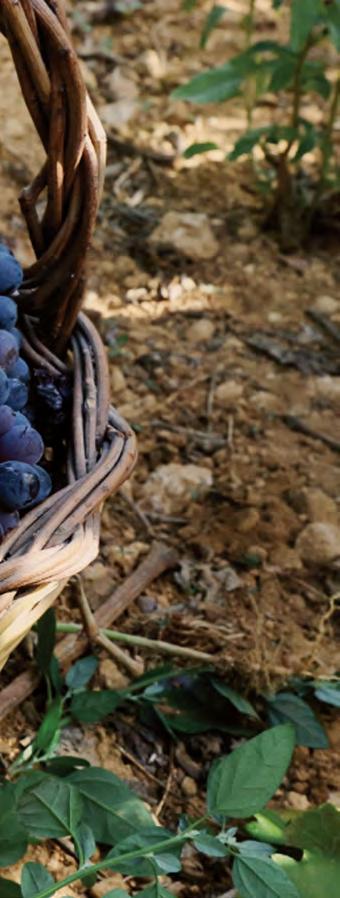
Cellino San Marco
The Rizzello family has 180 hectares in Italy’s “heel” at Cellino San Marco in the heart of Puglia, between Brindisi and Lecce. The peninsula is surrounded by seas – the Adriatic Sea and Strait of Otranto on one side and the Gulf of Taranto and Ionian Sea on the other. This is a rural agricultural region with olive groves, figs, orange trees as well as vineyards. Old bush vines are farmed in a traditional manner. Puglia has a dry climate and benefits from sea breezes and an underground network of watercourses flowing through the limestone bedrock. Wines produced are rich and high in alcohol with sweet berry fruits.
“Salento is perpetually sun-kissed and caressed by the wind that carries the scent of the Mediterranean Sea to the vineyards.“
$ 22.83 $ 137.00

Fruity aromas of pear and gooseberries with nuts give this wine lots of appeal. It is soft with some residual sweetness. Chardonnay grapes were picked in August and softly pressed. The juice was fermented at low temperature, leaving 10 g/l of natural sugar.
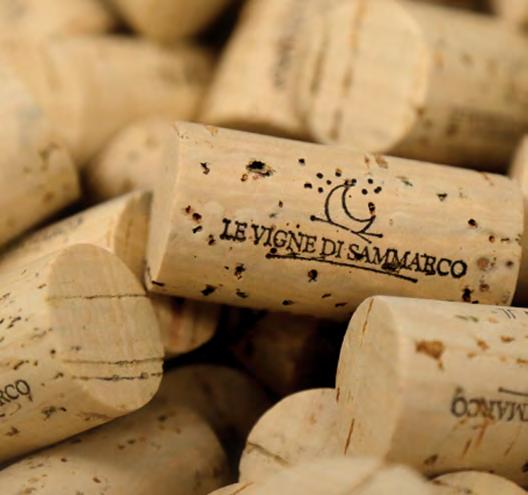

Negroamaro grapes were picked, lightly crushed and left to macerate on skins for 12 to 14 hours. It has intense aromas of pear drops and red berry fruits with a flavoursome palate and crisp acidity.

The warmth of the region shows in this Primitivo, conferring a raisined fruit character combined with fresh red berries. On the palate it has sweet berry fruits leading to a grippy finish.


Cellino San Marco lies to the north of the DOP region of Salice Salentino. Red wines are based on the sought after Negroamaro and Malvasia Nera grapes – in this case it is an 80:20 blend. Riserva requires 24 months of maturation prior to release and Le Vigne di Sammarco’s 2015 spent nine months in old oak barrels, producing a wine with mellow fruits aromas and sweet tobacco flavours.

Marked by its time in oak, Solemnis Primitivo has a distinct character of pencil shavings which sits alongside rich concentrated flavours of blackcurrants, cooked black fruits, blueberries and vanilla muffins. It is full bodied with a chewy finish. Primitivo grapes were picked at the end of August and beginning of September. Grapes were de-stemmed and then left to macerate on skins for 18 days. The wine was matured for six months in French Allier oak barrels.
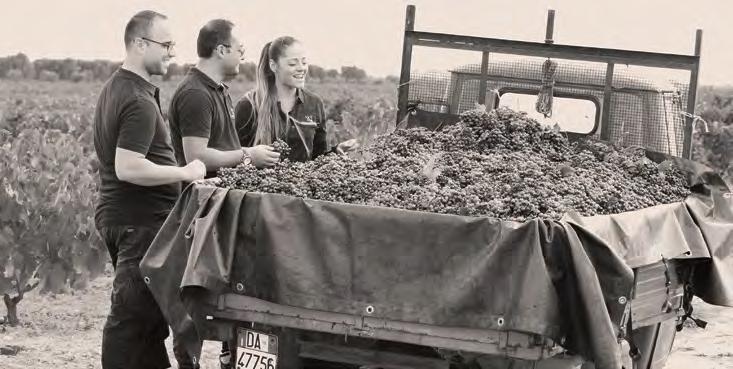
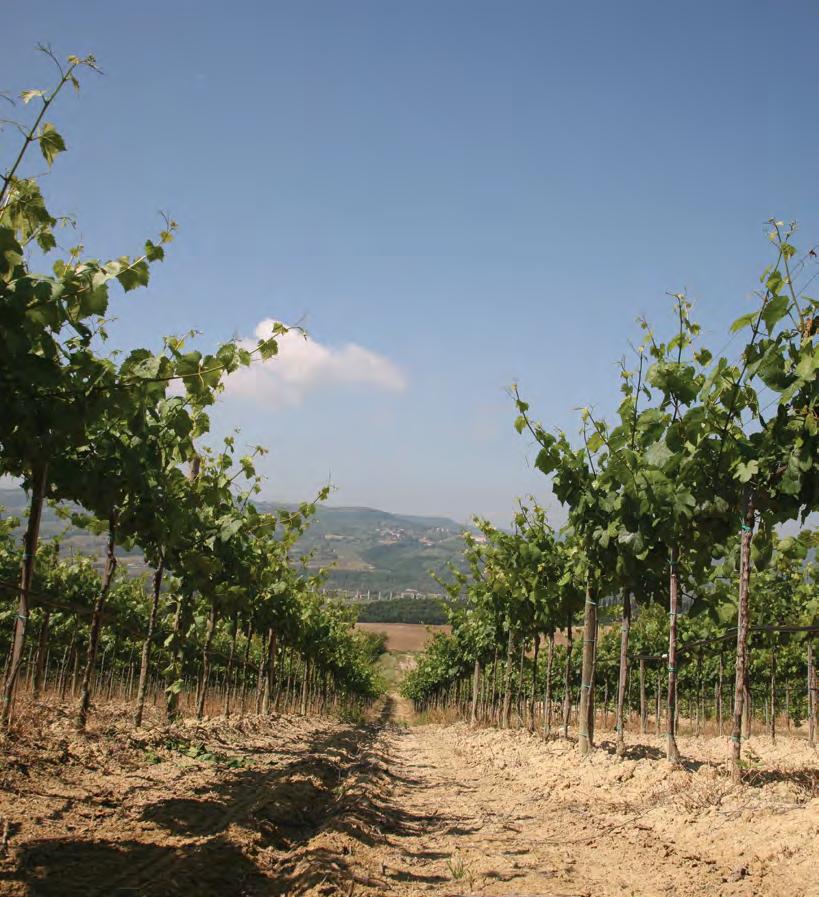
“As part of the same country that created Ferrari and Gucci, we also share a similar passion for excellence.“
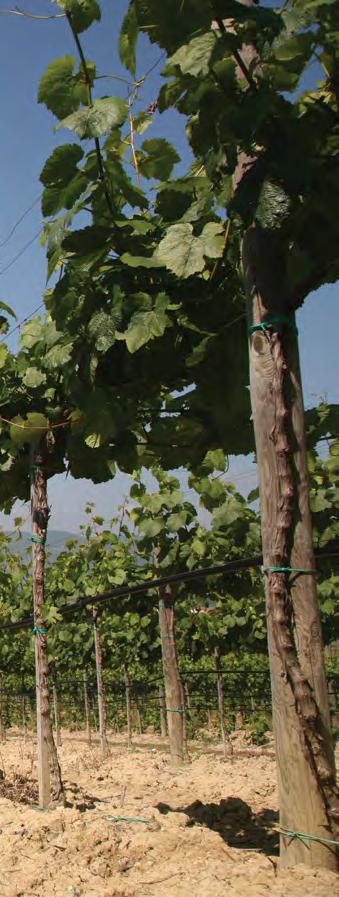
Winetraders specializes in Italian wines. Here we feature a few gems from their portfolio.

The Cabutto family own approximately 20 hectares of vineyards in and around Barolo and Piemonte. Nebbiolo grapes for the Langhe 2017 came from vineyards in Novello and La Morra. The wine is a vibrant ruby colour with aromas of redcurrant and cranberries with herbal and earthy notes in the background. 2017 was a dry vintage with warm spring temperatures early in the season, followed by a drop in temperature and risk of frost towards the end of April. Grapes were harvested in October and the wine vinified and aged in tank with no use of oak.
fruits, bitter cherry
Rosemary braised pork shank with braised greens
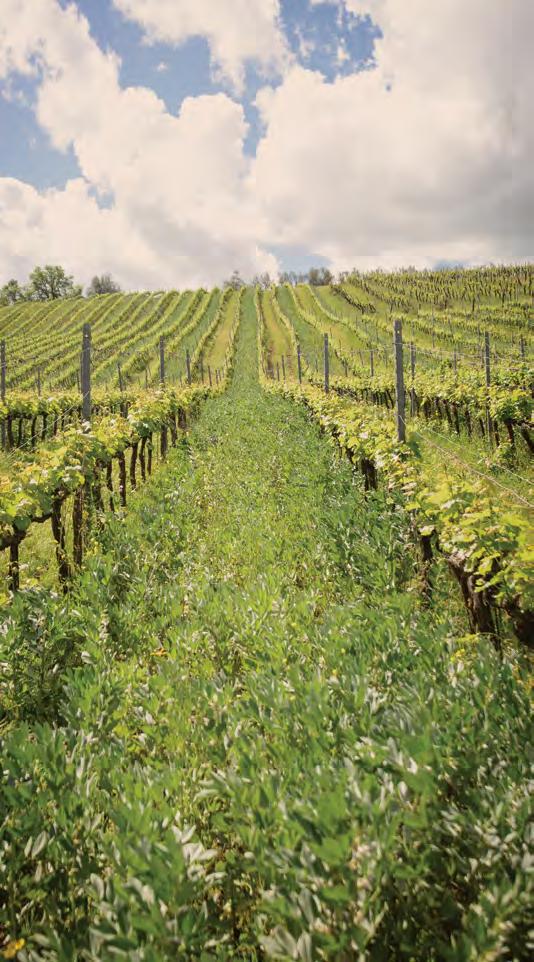

Cabutto Barolo 2015 shows nice tertiary characters with meaty notes and a hint of leather over red cherry fruits and vanilla. The wine has some grippy tannins with a juicy acidity and lingering flavours of dried fruits and treacle. Made in an exceptional vintage, 2015 was characterized by a very cold winter with lots of snow followed by a rainy spring – a blessing given the hot summer that followed. Grapes were left on skins for a long maceration, then the wine was aged for nearly three years in large Slavonian oak casks.
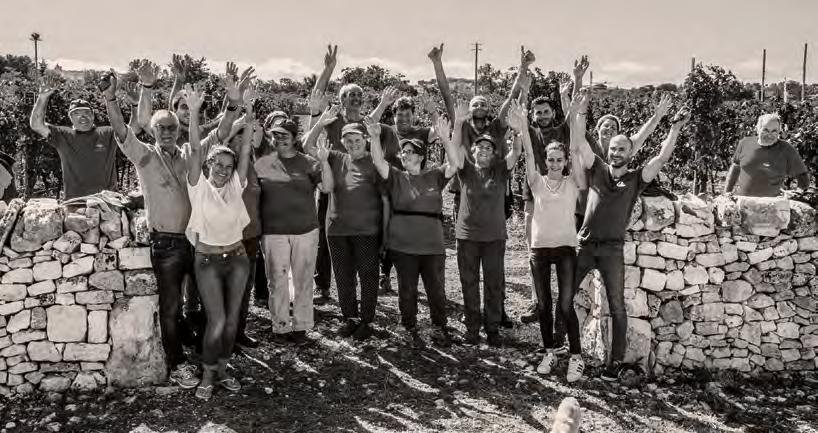

1345 zucchetto valdoBBiadene, e xtR a dRy, pRoSecco SupeRioRe, docg, a zienda agRicola paolo zucchetto, 2018
Glera $ 33.50 $ 201.00
Azienda Agricola Zucchetto specializes in producing fine sparking Valdobbiadene wines. Winemaker Carlo Alberto Zucchetto is the third generation in his family, working alongside his father Paolo who takes care of the vineyards. Produced from Glera grapes, this Prosecco was fermented and matured for five months in tank. The 2018 Extra Dry has a fine even mousse with pear and lily aromas. It is smooth and well balanced with good midpalate weight and a crisp apple finish.
pears, white fruits
Fresh apples, [03]
Crostini - italian style canapés
1346 l a p ieve c hianti, docg, t enuta m o R iniello, 2016 s angiovese, Canaiolo, Ciliegiolo, Colorino $ 28.17 $ 169.00

A Chianti with herbal fruits, smoke and good depth. It was organically produced from Sangiovese, Canaiolo, Ciliegiolo and Colorino grown on the Pieve estate at Montaione. The Tognetti family farm approximately 15 hectares of vines at 240 to 500 metres. Le Pieve 2016 was fermented and matured in old concrete tanks.
smoke, herbal fruits 18°C
Juicy cherries
sweet italian sausage-stuffed bell peppers
Grechetto, trebbiano, Malvasia, Chardonnay, s auvignon Blanc $ 25.50 $ 153.00

Azienda Agricola Argillae is located to the north west of the ancient Etruscan hilltop town of Orvieto, which lends its name to the DOC famous for its white wines. Vines are planted on fossilized seashell limestone soils with clay and sand. The 2019, tasted as a tank sample, had ripe tropical fruit aromas with a smooth palate and bitter citrus and mineral finish.
Each variety in the final wine was picked and vinified separately at low temperature in tank, then aged on fine lees.
2019-2020, M8 D9
tropical fruits 6°C
smooth, bitter citrus pith, [01]
thai green chicken curry

Grechetto is a speciality of the Umbria region, increasingly renowned for its quality potential. Another tank sample at the time of tasting, it has fresh apple and limey flavours, and is medium bodied with more weight than the Orvieto with a crisp finish.
2019-2020, M8 D9
fresh apple 6°C
Crisp, dry, [01]
Mint and pine nut pesto with gemelli pasta and asparagus
Order this Grechetto and discover a hidden gem of Umbrian grape varieties.
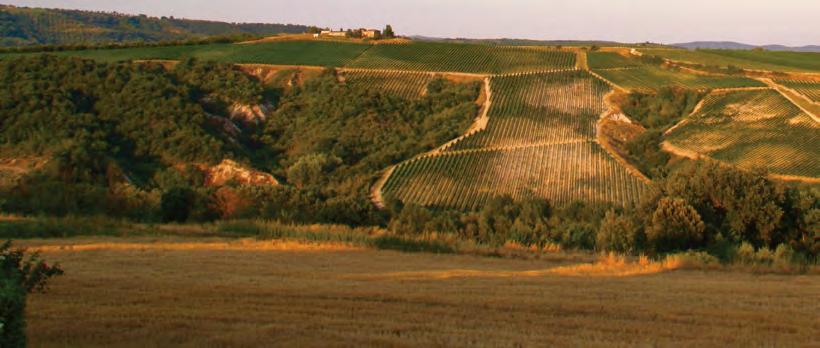

The Cesanese variety has long been grown in Lazio, to the east of Rome. This is a high scoring wine with intense aromas of black cherries and blackberries. It is rich and smooth with concentrated flavours of black fruits and liquorice. More savoury and dark fruit flavours emerge in the glass, and it has a fine tannin structure and poise. Grapes were picked in October with fermentation on skins for 15 days at 25°C.

A distinctly oaky wine with mellow coconut aromas, it was matured in oak barrels for three months, conferring a character which complements the sweet fruits and bitter chocolate flavours. It is succulent with concentration and a grippy finish. Produced by I Pastini winery in Puglia’s Itria valley, Primitivo grapes came from vineyards planted at between 100 and 150 metres, benefitting from cooling sea breezes.
Verso Sud is produced by I Pastini from the local variety Susumaniello. This varietal is often found blended with other grape varieties, so this 100% Susumaniello is a rarity in itself. Deep ruby in colour, it has intense aromas of raspberries, spices, cooked patisseries and milk chocolate. It is soft and supple with vanilla, red berry and strawberry flavours with a spicy finish. The oak is very obvious, giving support and length to the wine. It does not completely dominate but it is certainly present.
Black fruits, savoury, liquorice
oxtail braised with tomato and celery



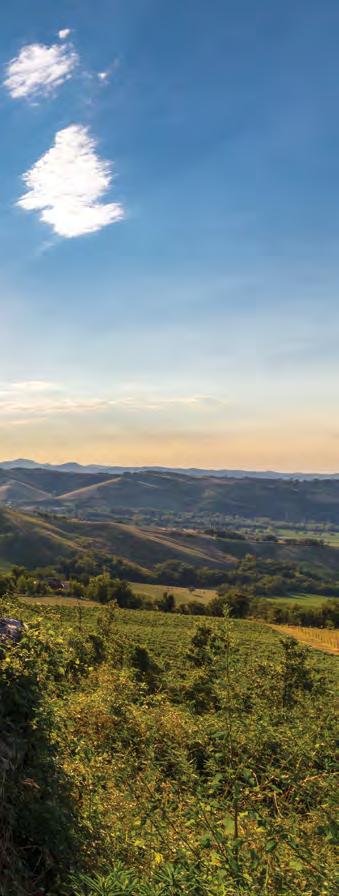
Werner Walch and his family grow and make wines in the Alto Adige in northern Italy. They also have a wine merchant business with links to growers across Italy in the classic regions of Piemonte and Tuscany as well as lesser known regions.
“With generations of expertise in the Italian wine market, we are able to select and choose from a wide range of producers and wines.“ – Werner Walch
1352 v itevecchia, d olcetto d’a l B a, doc , t e RR eno S t R e, 2018 Dolcetto $ 26.83 $ 161.00
A vibrant wine with intense fruit aromas of blackcurrant and fresh apples. This Dolcetto is soft and smooth with dark fruit flavours that linger on the palate. It is medium bodied with a powdery texture. Dolcetto is the softest of the black grapes from Piemonte, producing wines that express their full flavour suited for early drinking. Vines are trained with the Guyot system and grapes harvested at the end of September.

Pore over Vino etcetera’s truffle article while pouring an Opimian wine from Piemonte.
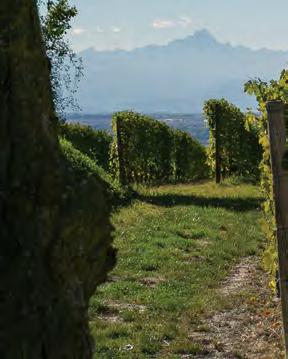
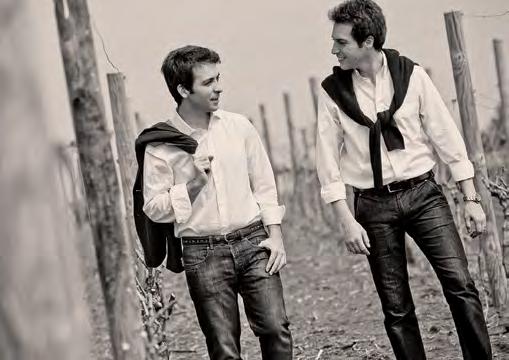

Aged in new French oak barrels for eighteen months, the 2017 Truffle Hunter Leda Barbera d’Alba develops a smoky character in the glass. Initially, mellow aromas of dark fruits with just a hint of vanilla emerge, leading to a complex and concentrated wine with layers of fruit and flavour. It is fine in texture with a delicious bitter cherry finish and will continue to develop.
Black fruit, oaky, smoke
Brasato al vino rosso
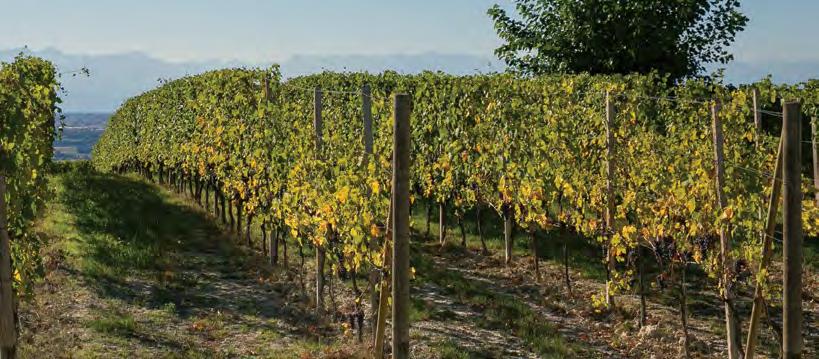

The Bosio family cultivate more than 200 hectares of their own vineyards and source grapes from neighbouring growers. The Nebbiolo for this Barbaresco came from vineyards in Neive and Barbaresco, planted at 200 to 300 metres on clay calcareous soils. Typically light in colour, it has aromas of redcurrants, wood and a subtle hint of green leaf. It is a supple wine, medium bodied with fine texture and more flavours of redcurrants, cranberries, bitter cherries and a long chocolate finish on the palate. Truffle Hunter Leda Barbaresco is a wine with good intensity and depth produced from a wellstructured vintage which merits keeping. After vinification in tank, the wine was matured for 24 months in oak barrels.

Showing some tertiary characters with forest floor, meaty, spicy and woody notes, this is a complex wine. Nebbiolo was harvested from prime sites around the village of Verduno. After tank fermentation it was matured for three years in French oak barrels. It is supple on the palate with savoury marmite flavours and a juicy acidity complemented by fine-grained tannins, giving a powdery texture and a long bitter cherry and chocolate finish.
cherry chocolate
Herb-and-salt crusted standing rib roast with morel sauce

i l l am BRu S co di m a R cello, gR a S pone R o, igp e milia, v ino fR izzante, v ini aR iola, 2018
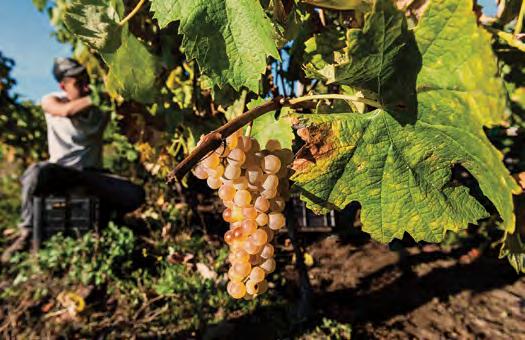
Check out our Verdicchio and Pontemagno featured in last year’s Discovery case.
A seriously delicious example of this traditional red sparkler from EmiliaRomagna, it has a foamy purple head on pouring, and exudes aromas of blackberry and raspberry fruits. Pure berry flavours are enhanced by the gentle spritz and tangy acidity which lead to a red cherry finish. It is relatively light in alcohol at 10.5% with some residual sweetness that make it even the more appealing. Grapes were grown around the hills of Parma.

A smooth white with some nutty flavours and typical bitter grapefruit character on the finish. It is a blend of 85% Verdicchio with 15% Malvasia grown on the hilly slopes around Ancona. The Castelli di Jesi name alludes to the fortified villages built around the region in Medieval times. The proximity to the coast and the Adriatic Sea and the rivers that traverse the region provide cooling onshore wines in the morning and offshore in the late afternoon, creating a temperate climate that is ideal for white wines grapes.

This is a blend of 50% Sangiovese and 50% Montepulciano with a soft supple palate. Aromas of herbs such as tarragon mingle with red cherries. It is quite light bodied but has some grip on the finish, giving length and personality.
roast pork
t enute n ico S ia, e tna Ro SS o, doc , f ondo f ila R a, c ont R ada m onte g o R na, 2016
Nerello Mascalese, Nerello Cappuccio
$ 44.00 $ 264.00
Etna wines are renowned for their minerality and “volcanic” nature, and this wine certainly has bags of personality. Aromas of fresh herbs, cut grass and mint precede a relatively light palate with firm acidity, redcurrant and bitter cranberry flavours with supple tannins. Fondo Filara is a tightly wound wine with astringency and freshness. It is a blend of 80% Nerello Mascalese and 20% Nerello Cappuccio. The vineyards lie between 650 and 750 metres on volcanic sandy soils rich in minerals. Grapes were harvested in late October, macerated and fermented before maturing for five to six months in barrels then three to four months in large casks.

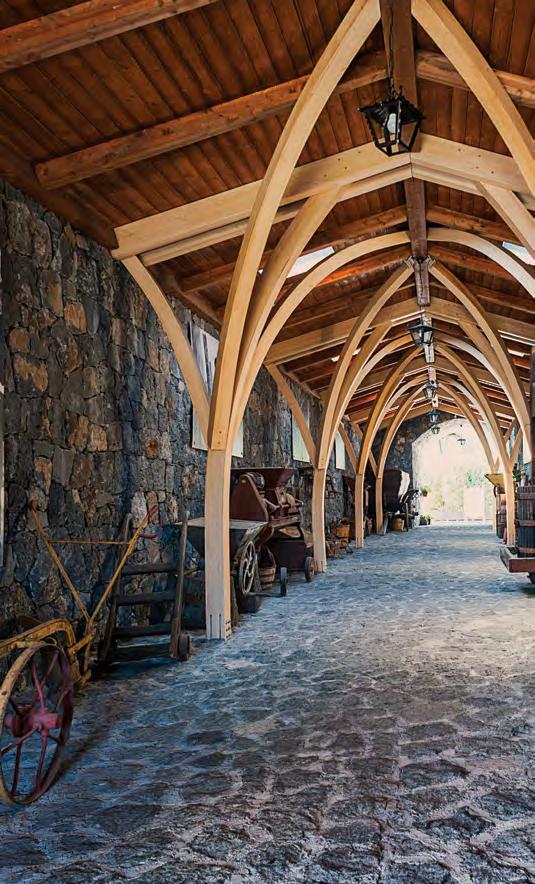
Opimian’s wine programs are designed to help you develop your palate at each stage of your journey. It starts with Discovery; once you’ve cultivated your curiosity and explored the wine world, you can graduate to Select Plus — the “next level” mixed cases, with both ready to drink wines and wines for aging. After you’ve challenged your palate and started your cellar, it’s time to start collecting with Founders’ Choice — premium wines available exclusively through this program. You do not have to worry about deadlines or ordering procedures since Opimian automatically places an order on your behalf with every new Cellar Offering. Your preferred payment will be used, then your wine is shipped and you will receive a Pick Up Notice indicating where to pick it up. Visit opimian.ca for more information.

EAGER TO LEARN your way around the world of wine or simply enjoy a selection of bottles for everyday drinking? The Discovery program has it all. Over the course of the year, members enrolled in this program receive one mixed case of six bottles from a featured supplier per cellar offering. These wines are all for immediate drinking so you can indulge in one or two the moment they get to you. Whether you’re new to Opimian or fancy hopping on an introductory tour of the world of wine, we recommend this route.

DELVE INTO A VERSATILE SELECTION of bottles and explore the four corners of the world of wine. This program features both early drinkability and mid-term aging potential bottles so you can enjoy some now and lay the others down. Throughout the year, Select Plus members receive one mixed case of six bottles per Cellar Offering. These wines may all be enjoyed young but will benefit from some maturing time. The ideal program for those who wish to expand their horizons and refine their palate one bottle at a time.

A COLLECTOR’S DREAM Dedicated to the spirit of our Founders, this program features wines that are exclusive to this program and don’t appear on our Cellar Offerings. Made up of six bottles of a premium wine with a dedicated back label and a special message with tasting notes from the producer, each of the cases you will receive represents some of the very best our producers have to offer. These bottles offer long-term aging potential so you might want to free up space in that cellar … or start building one.